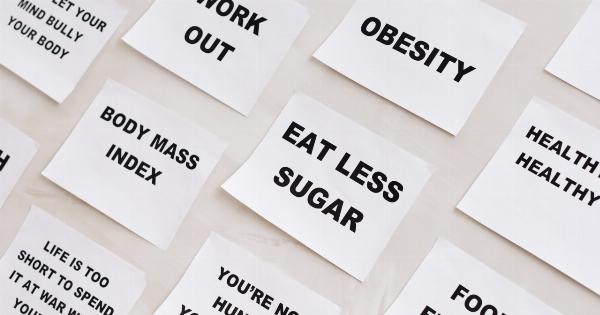How we nurture our body reflects in our mood and thoughts. Similarly, our thought process also affects our food habits and choices. Negative thoughts can impact a person’s diet negatively, making it difficult to maintain a healthy eating pattern.
Our thoughts not only influence our cravings and appetite but also our digestive system’s functioning. Negative emotions like anxiety, stress and depression can promote unhealthy eating habits.
The Connection Between Thoughts and Eating Behavior
In today’s fast-paced life, stress and anxiety have become a part of our daily lives. Several studies show that negative emotions can affect our eating behaviour and pattern, leading to an unhealthy diet.
Negative emotions can affect our appetite, food choices and influence overeating or binge eating.
Stress triggers the release of the hormone cortisol in the body, leading to an increase in appetite and cravings for high-fat and high-sugar foods.
These foods provide instant energy and make us feel good temporarily, but they can cause weight gain and other health issues in the long run.
Similarly, negative emotions like depression and anxiety can also cause people to lose their appetite, leading to unhealthy weight loss and nutrient deficiencies.
People indulge in emotional eating to cope up with negative feelings, leading to overeating and weight gain.
Impact of Negative Thoughts on Digestive System
Negative thoughts and emotions can affect our digestive system’s functioning and cause several digestive disorders like acid reflux, irritable bowel syndrome and inflammatory bowel disease.
Stress, anxiety and depression can slow down the digestive process and reduce the blood supply to the digestive organs, leading to digestive issues.
Our gut is often referred to as the second brain, as it is linked to our mental health. Negative emotions can disrupt the balance of the gut microbiome, leading to digestive issues.
It can cause inflammation in the gut, which can lead to several health issues in the long run.
How to Overcome Negative Thoughts and Improve Your Diet
Overcoming negative thoughts and emotions can be challenging, but it is crucial to maintain a healthy diet and improve our overall wellbeing. Here are some tips to overcome negative thoughts and improve your diet:.
1. Identify your Triggers
Identify the situations and emotions that trigger negative thoughts and affect your eating behaviour. Try to avoid those triggers or manage them effectively to prevent unhealthy eating habits.
2. Practice Mindfulness
Mindfulness is a technique that can help you become more aware of your thoughts, emotions and physical sensations. It can help you identify negative thoughts and emotions and manage them effectively.
Practicing mindfulness can promote healthy eating habits and improve overall wellbeing.
3. Seek Professional Help
If negative thoughts and emotions are impacting your daily life, seek professional help from a healthcare provider or a therapist.
They can provide you with effective strategies and treatment to overcome negative thoughts and improve your diet and overall wellbeing.
4. Adopt a Balanced and Nutritious Diet
Eating a balanced and nutritious diet can help you manage negative thoughts and emotions and improve your overall wellbeing. Include a variety of fruits, vegetables, whole grains, lean proteins and healthy fats in your diet.
Limit the intake of processed and high-fat foods.
5. Practice Self-care
Practicing self-care is crucial for maintaining a healthy diet and managing negative thoughts and emotions. Engage in activities that promote your physical and mental wellbeing, like yoga, meditation, exercise and hobbies.
Conclusion
Negative thoughts and emotions can have a significant impact on a person’s diet and overall wellbeing. It is essential to identify and manage negative thoughts and emotions effectively to maintain a healthy diet and improve overall health.
Adopting a balanced and nutritious diet, practicing mindfulness and self-care, seeking professional help, and identifying triggers can help to overcome negative thoughts and improve our diet and overall wellbeing.































